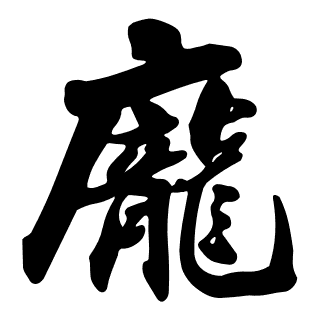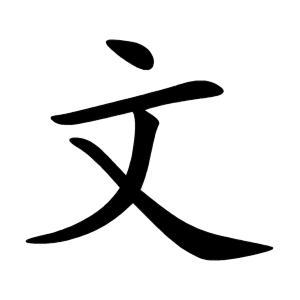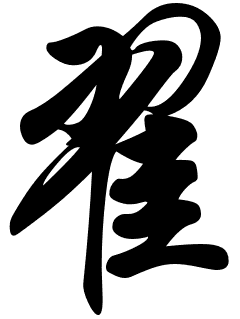Other uses
- River Wenning, in North Yorkshire and Lancashire, England
Wenning is a surname. Notable people with the surname include:

Yin is a Chinese surname. In 800 BCE, Bo Jifu, a renowned judge during the reign of King Xuan of Zhou, held the position of Yin and changed his name to Yin Jifu. During the era of the Imperial Examination System, three other magistrates took on the surname Yǐn (尹) to denote their Imperial rank and favoured status. It is the 100th name on the Hundred Family Surnames poem.

Xing is a Chinese surname. There are two hypothesized sources for the extant catalogue of surnames:

Xiong is the pinyin romanization of the Chinese surname 熊 (Xióng). It is 41st in the Hundred Family Surnames, contained in the verse 熊紀舒屈.

Pang is a Chinese surname. It is romanized Pong in Cantonese. In Vietnam, this surname is written in Quốc Ngữ as Bàng. "Pang" is also the Cantonese romanization of another Chinese surname Peng.
Ke is a Chinese surname. It originally appeared on the Hundred Family Surnames. As of 2006 was no longer one of the top 100 most common surnames. A 2013 study found that it was the 145th most common surname, shared by 1.06 million people or 0.080% of the population, with the province most being Hubei. It is also spelled as Quah, Qua, Kua, Kuah, Kwa, Ke, Ker, Ko, Koa, Kok, or O in English, owing to variations in dialect or romanisation system
Boren is a surname of German origin. Notable people with the surname include:

Wen is the pinyin romanisation of the Chinese surname 文 (Wén).
Wenner is a surname. Notable people with the surname include:
Xin is the romanization of several Chinese surnames including Xīn 辛, Xīn 新 and Xìn 信. Xīn 辛 is the commonest among these; it is the 379th surname in the Hundred Family Surnames.
Woon is a surname with various origins. It is a word in the old Cornish language, meaning 'downlander', and remains a common name in Cornwall. It is also one possible spelling of the Minnan pronunciation of the Chinese surname romanized in Mandarin pinyin as Wen (溫).

Bi is a Chinese surname. It is listed 76th in the Song dynasty classic text, the Hundred Family Surnames.

Zhai is the Mandarin pinyin romanization of the Chinese surname written 翟 in Chinese character. It is romanized Chai in Wade–Giles, and Chak in Cantonese. It is listed 292nd in the Song dynasty classic text Hundred Family Surnames. As of 2008, it is the 120th most common surname in China, shared by 1.4 million people.

Dou is the Mandarin pinyin romanization of the Chinese surname written 窦 in simplified Chinese and 竇 in traditional Chinese. It is romanized Tou in Wade–Giles. Dou is listed 39th in the Song dynasty classic text Hundred Family Surnames. As of 2008, it is the 219th most common surname in China, shared by 380,000 people.
Sheng is the Mandarin pinyin and Wade–Giles romanization of the Chinese surname written with the Chinese character 生. Sheng生 is a rare Chinese surname that is widely distributed but with a relatively small population. The origin of the surname can be traced back to the leader of an ancient tribal alliance in China, named Zhisheng 知生. It is said that his appearance taught people about production techniques, "in summer, gather firewood, and in winter, burn it, hence the people were named Zhisheng's people." In ancient classic literature such as "Zhuangzi" and "Gangjian Yizhilu," Yuchao, Suiren, and Zhisheng were referred to as the "Three Emperors." These mythological figures are believed to be the pioneers who taught people production techniques. Nowadays, Yuchao, Suiren, and Zhisheng are commonly respected as the "Three Emperors" as a title of honor for their contributions in later generations. "Zhuangzi" mentioned that Yuchao, Suiren, and Zhisheng were the representative figures of three important eras in history. "Taiping Guangji Laozi" referred to Heaven, Earth, and Humanity as the "Upper Three Emperors," while Yuchao, Suiren, and Zhisheng were the "Lower Three Emperors." The era of the Three Emperors represents an important development stage in human history, where Yuchao solved the problem of human settlement, Suiren solved the food problem, and Zhisheng began to teach people how to produce, thus opening the era of agricultural civilization.
Rǎn is the Mandarin pinyin romanization of the Chinese surname written 冉 in Chinese character. It is romanized Jan in Wade–Giles. Ran is listed 301st in the Song dynasty classic text Hundred Family Surnames. As of 2008, it is the 178th most common surname in China, shared by 670,000 people.
Jiang is one of the oldest Chinese surnames, being one of the original xing (姓) surnames. It was one of the "Eight Great Xings of High Antiquity", along with Jī (姬), Yáo (姚), Yíng (嬴), Sì (姒), Yún (妘), Guī (媯) and Rèn (妊), though some sources quote Jí (姞) as the last one instead of Rèn. Of these xing, only Jiang and Yao have survived in their original form to modern days as frequently occurring surnames. It is the 32nd surname listed in the Song dynasty-era Hundred Family Surnames poem. It is the 60th most common surname in China (2007), roughly 0.34% of the Han Chinese population. The Lu clan of Fanyang stem from this surname before taking on the Lu (盧) surname. Derivative surnames of Jiang include Zhang, Lü, Qiu, Shen., These originated:
Sù (粟) is a Chinese surname. Notable people with the surname include:
Wu is a Chinese surname. It is the 89th name on the Hundred Family Surnames poem. It means ‘five’ in Chinese, an alternative form of the character 五. A 2013 study found that it was the 116th most common name, shared by 1,710,000 people or 0.130% of the population, with the province with the most being Guangdong.
Wen is a Chinese surname. simplified Chinese: 温; traditional Chinese: 溫; pinyin: Wēn), meaning "warm", is sometimes romanised as Wen or Vun in Taiwan, Ôn in Vietnamese Wan in Cantonese, or Wen/Won/Wan/Bong/Voon/Oon/woon/Man/Mun in Malaysia. According to a 2013 study it was found to be the 104th-most common surname, shared by 2,170,000 people or 0.160% of the population, with the province with the most people being Guangdong.
Wén is a Chinese surname. It is related to the name Wenren (Wenjen).